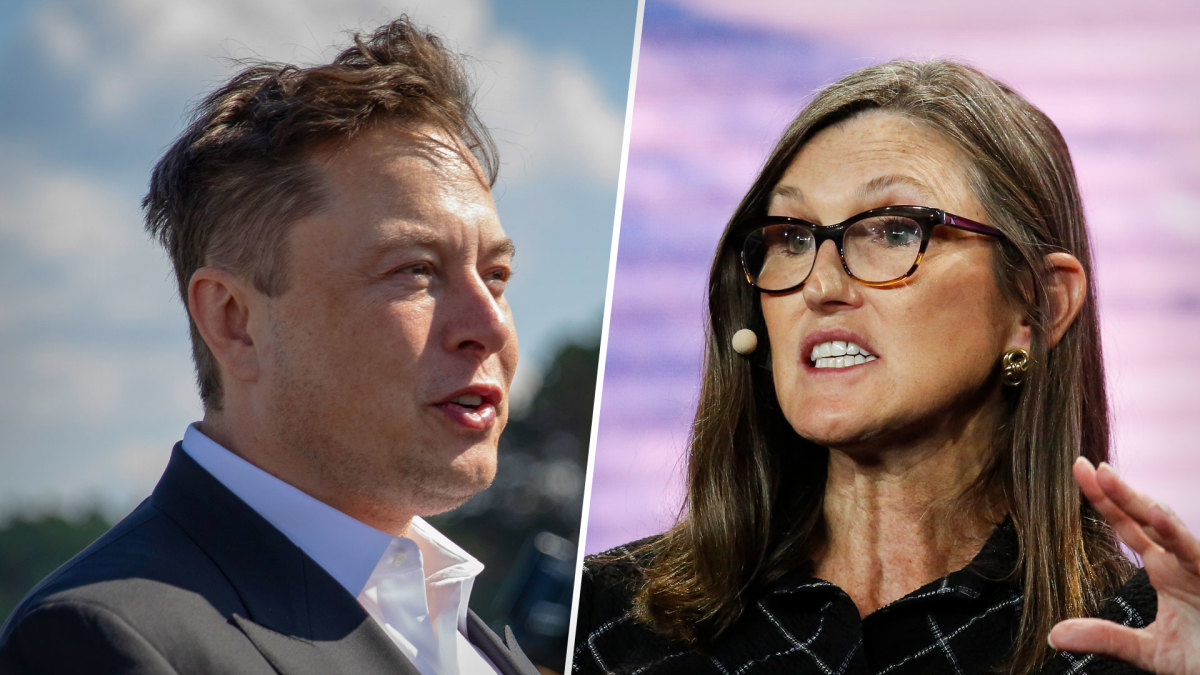
Cathie Wood, the CEO and investment lead of Ark Invest, has long been very clear about one point: Elon Musk is an innovator worth betting on.
Much of this bet on Musk has culminated in several enormous holdings — and a powerful bull thesis — in Tesla (TSLA) -). Across Ark Innovation and Ark Autonomous Tech and Robotics, the firm owns more than $750 million worth of stock in Tesla, which Wood thinks will be trading at $2,000 per share by 2027.
But Wood is not content to keep her Musk bets solely on Tesla. Last year, Wood launched an Ark Venture Fund, which allows investors to gain exposure to a combination of privately held and publicly traded companies.
Related: The critical differences between Elon Musk's first and second Starship flight
The fund, which boasts $22.9 million in net assets, is invested in 47 companies. And its investment in SpaceX, Musk's space exploration firm, leads the portfolio.
Though Ark has not disclosed the number of SpaceX shares it owns or the value of those shares, the fund's SpaceX holding — the second-largest in the portfolio — is weighted at 8.91% of the fund.
The third-largest holding, in Replit, is weighted at 4.87%.
As of September, the fund was up 25% for the year.
In a new investment thesis for SpaceX released Monday, Ark's bullish expectation for the company is based on two factors: Starlink and Starship.
The firm said that the biggest near-term opportunity for SpaceX revolves around the company's Starlink satellite constellation. Ark believes that the "satellite connectivity market could approach $100 billion annually over the medium term, and Starlink is well-placed to win the lion’s share given their unique positioning."
SpaceX's Starlink satellite constellation is currently made up of more than 5,000 satellites, though the company has approval to launch as many as 12,000. SpaceX has said it plans to launch and operate a constellation in excess of 40,000 satellites.
This constellation has on occasion been the cause of public scrutiny of Musk and his unelected role in global politics and warfare.
He granted the Ukrainian government access to Starlink following Russia's invasion of the country, but last year refused to expand the military's Starlink access up to Crimea, where the military wanted to attempt an offensive that required internet access.
Related: SpaceX CEO Elon Musk's latest move in Gaza mirrors his position with Ukraine
Musk later clarified that Starlink was never meant to aid in the conduction of war, saying: "If I had agreed to their request, then SpaceX would be explicitly complicit in a major act of war and conflict escalation."
The other component of Wood's thesis revolves around Starship, the next-gen rocket that SpaceX has test-flown twice so far this year. The rocket is the most powerful launch vehicle ever flown and is meant to bring humanity to Mars.
Ark believes that "SpaceX has no competitor capable of rocket reusability."
The firm argued that SpaceX's rocket reusability makes its launches considerably cheaper than its competitors, making it difficult for the competition to catch up.
Blue Origin's New Glenn Rocket — which is expected to make its maiden voyage next year — is, like SpaceX's rockets, partially reusable. United Launch Alliance's Vulcan Centaur rocket additionally takes advantage of an initiative that allows for the most expensive parts of the rocket to be refurbished and reused after each launch.
"If Starship is successful in achieving rapid reusability, ARK’s research suggests there should be a $270 billion annual revenue opportunity for point-to-point transportation," Ark wrote.
Musk responded to the thesis on X, saying: "Big if true."
Contact Ian with tips via email, ian.krietzberg@thearenagroup.net, or Signal 732-804-1223.
Related: Cathie Wood explains why Tesla Chief Elon Musk is worth betting so much on
Get exclusive access to portfolio managers’ stock picks and proven investing strategies with Real Money Pro. Get started now.







